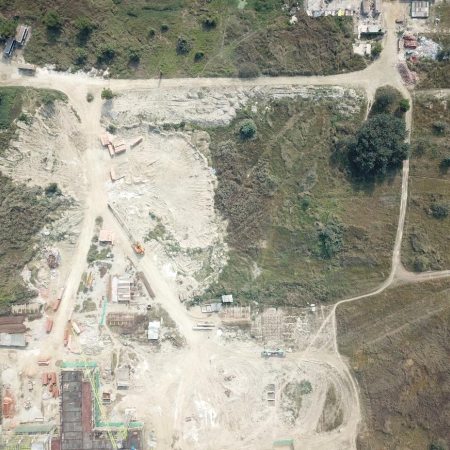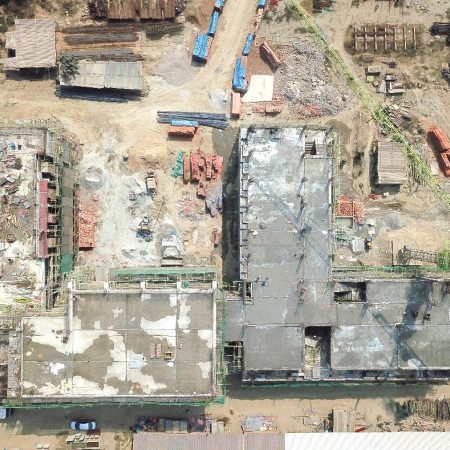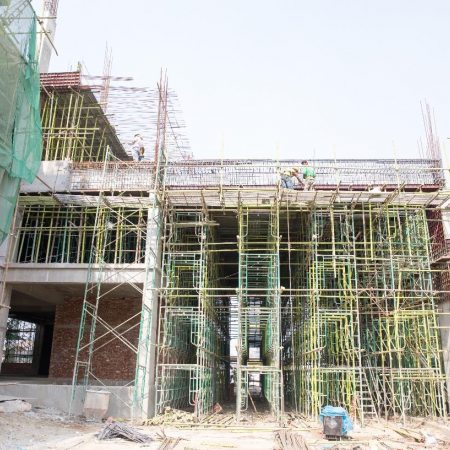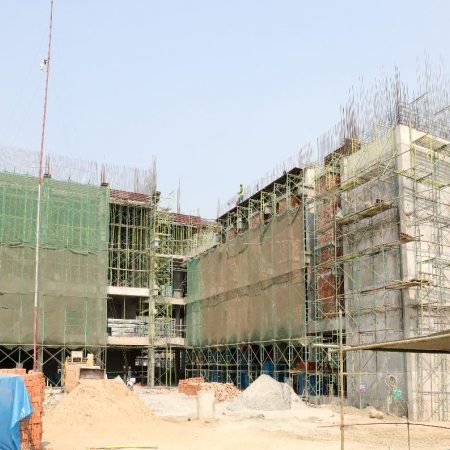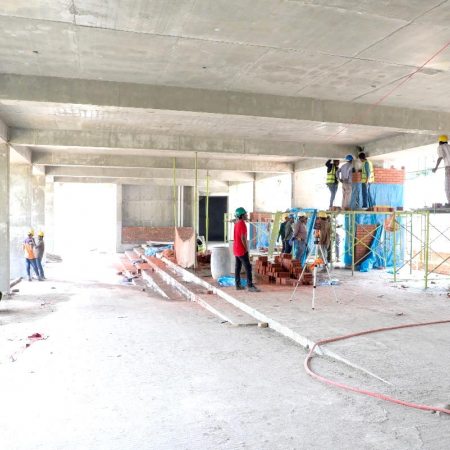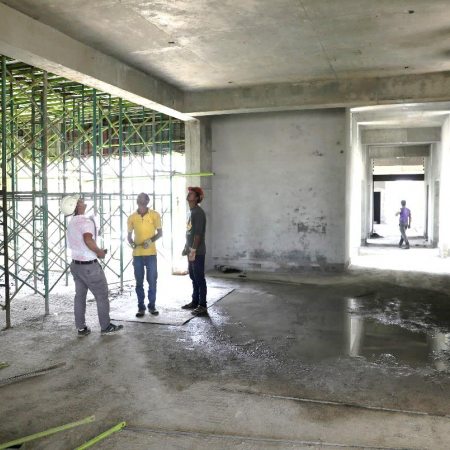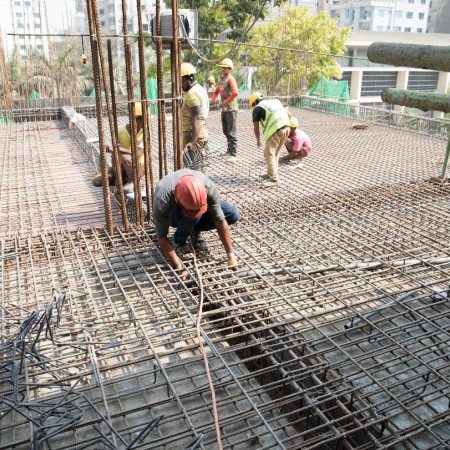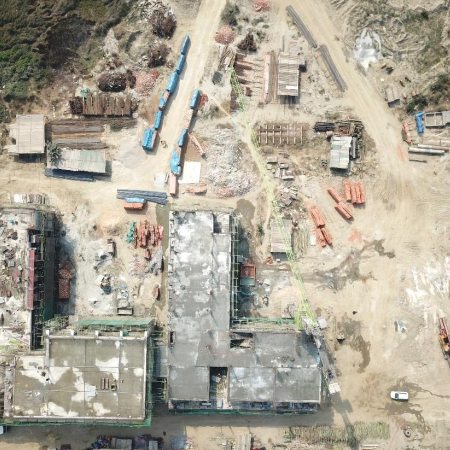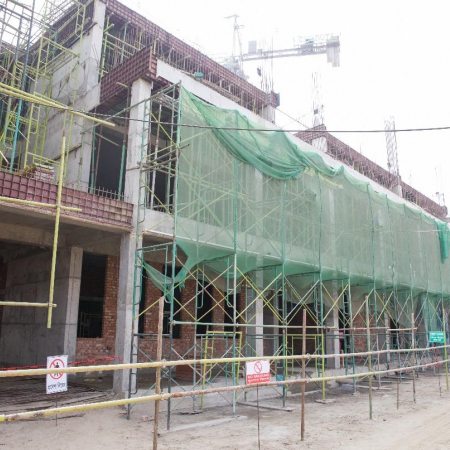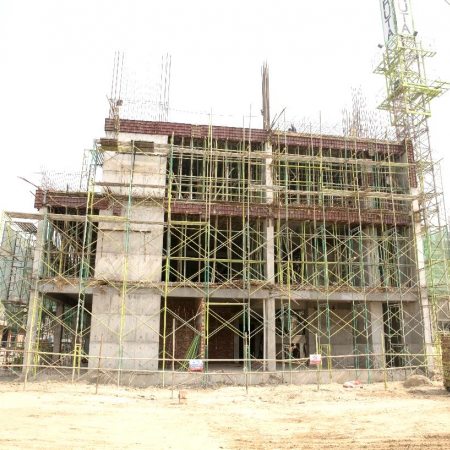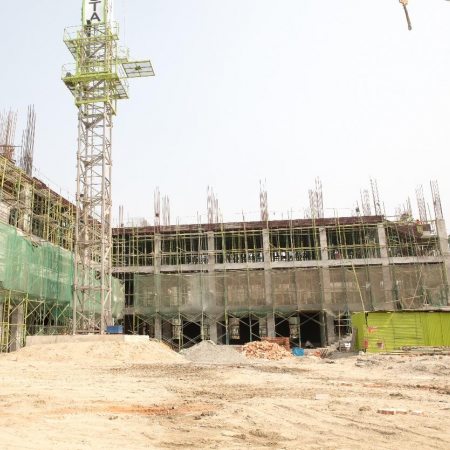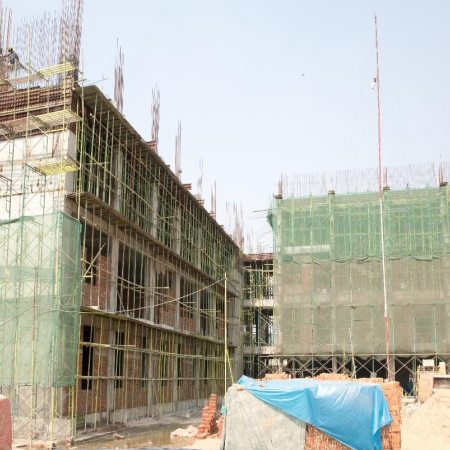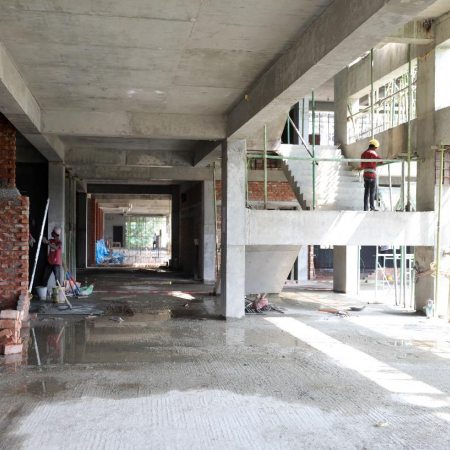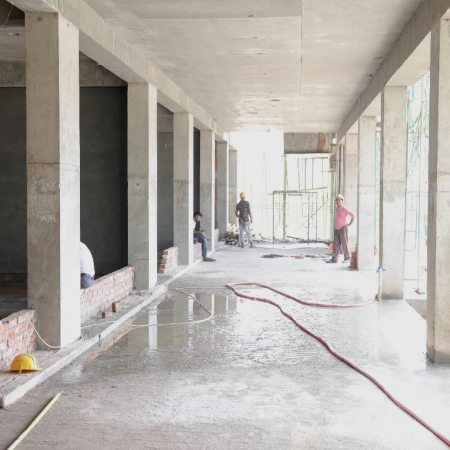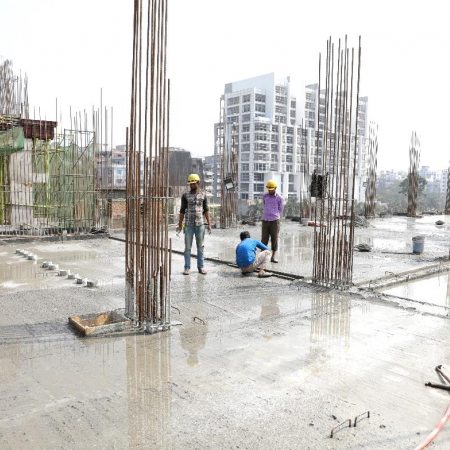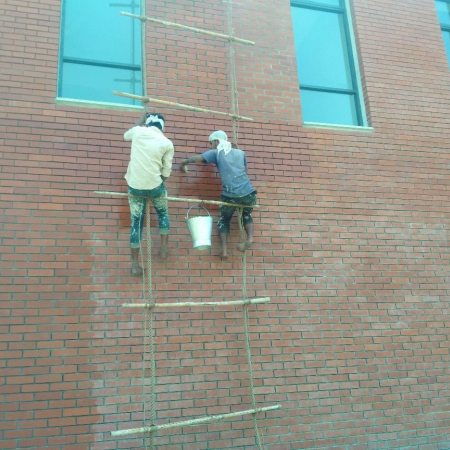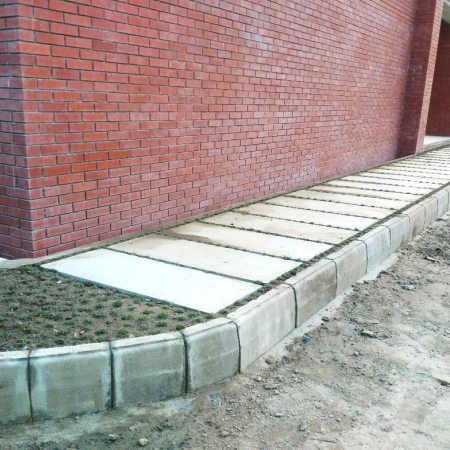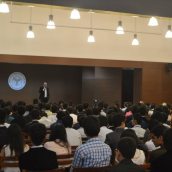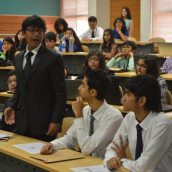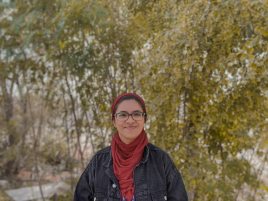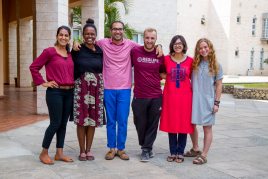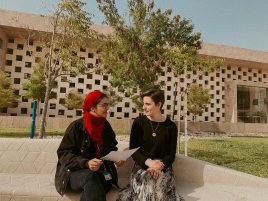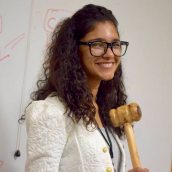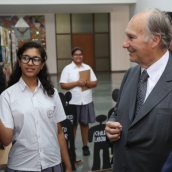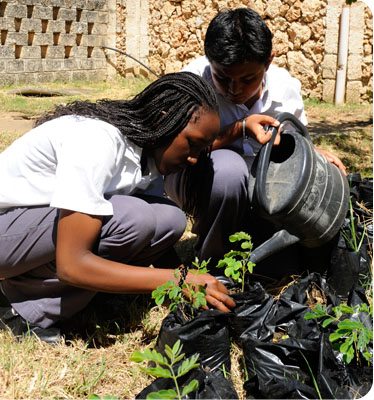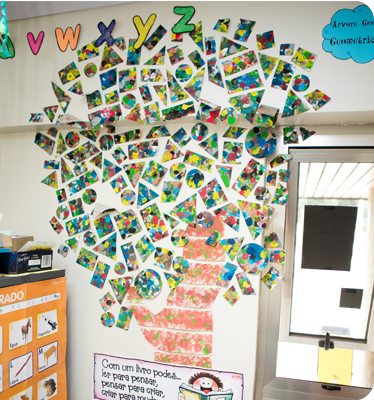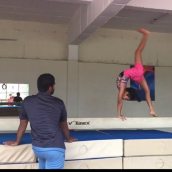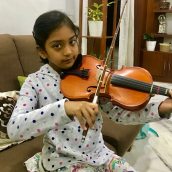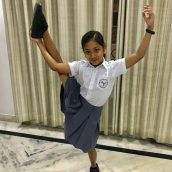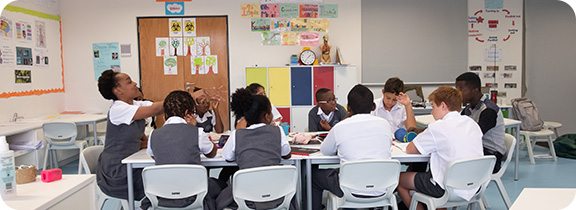
Financial Assistance
Admission to the Academy is based on merit. Students from all socio-economic backgrounds who satisfy the requirements for entry are encouraged to apply.
Partial to full financial aid is available to accepted students with a demonstrated need. Financial aid awards are reviewed annually and renewed only after reassessment of financial need.
For more information, and to access our financial aid application form, please see the following:
Please contact us for information about admission, scholarships and financial aid.
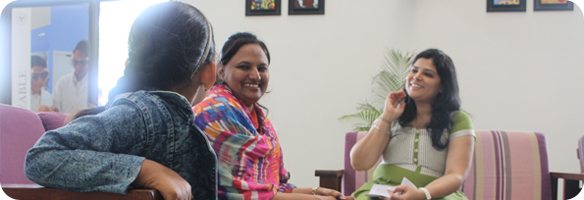
Admissions Enquiries
Our admissions team can help with all queries about becoming a student at the Academy, and with questions regarding the application process. Admissions office contact information:
Lines are open Monday to Friday 8.30 am–4.30 pm IST
+91-40-66291300
Email: admissions.hyderabad@agakhanacademies.org
Write to the Aga Khan Academy Hyderabad (online form)
Where to find us:
The Aga Khan Academy Hyderabad
Survey No: 1/1, Hardware Park
Maheshwaram Mandal, R.R. District
Hyderabad 501 510
Telangana, India
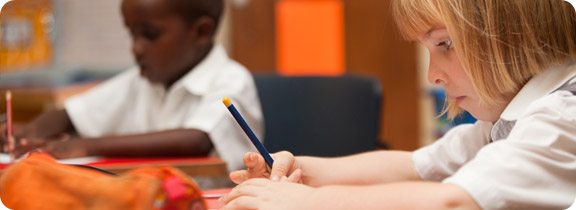
The Aga Khan Academy Curricular Strands
The Aga Khan Academy Curricular Strands are a unique part of the programme offered by the Aga Khan Academies. The strands are areas of learning aimed specifically at developing knowledge, skills and attitudes required by future leaders.
Our goal at the Academies is to develop young people who have strong local roots and are also globally minded. They should be able to become leaders in whichever fields they choose.
To help achieve this goal, we have identified five areas of learning, or strands, that we believe are important for our students. These are:
- Ethics
- Pluralism
- Economics for Development
- Cultures (including Muslim Cultures)
- Governance and Civil Society.
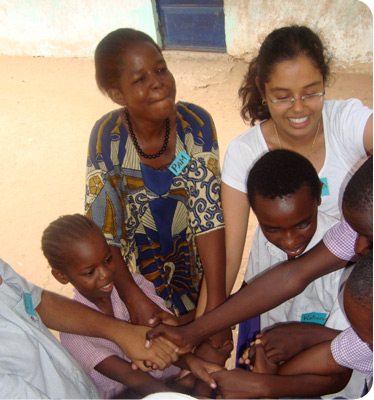 Implementing the Strands
Implementing the Strands
The strands are not taught as independent subjects. Instead, we weave them into the existing subject areas of the academic curriculum. They help inform the selection of content and themes for study. The strands also provide direction for school life outside the classroom in areas such as policy making, recruitment, student life and residential life.
Two of the strands, Ethics and Pluralism, help students develop values and dispositions required by ethical leaders. Our students learn about these areas in theory and are also encouraged to practice what they learn in their everyday lives.
Through the other three strands, our students learn about ideas that are important to the functioning of societies. In particular, they learn about how these ideas impact people’s lives in countries of the developing world. The knowledge they gain helps them understand key issues from both local and international perspectives.
The Strands in Practice
The strands were developed at the first Aga Khan Academy in Mombasa and are designed to be used in different cultural contexts. Teachers from the Aga Khan Academy, Dar-es-Salaam will help tailor the strands for the local environment in Tanzania.
Through the strands, our students develop attitudes and values that will help them throughout their lives. They also gain knowledge and understanding that will allow them to contribute positively to their societies in the future.
For more information on the educational programme offered at the Aga Khan Academy, Dar-es-Salaam, please visit the Academic Programme page.
Aga Khan Academy Dhaka Construction - February 2019
See our latest photo gallery and aerial drone footage showing progress on the construction of the Aga Khan Academy Dhaka – February 2019.
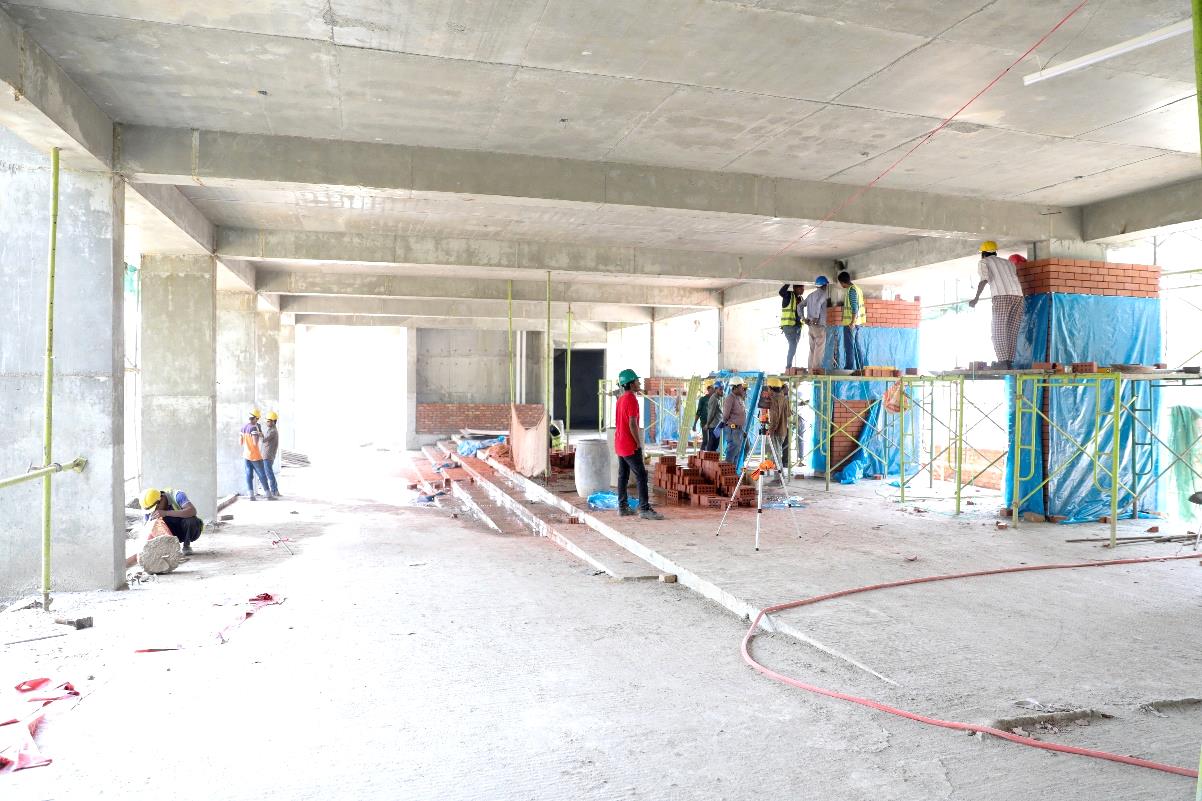
The MUN Press Corps
Reporters and photographers were on their feet at all times, running to capture a crisis update, to jotting down the points. As director, chasing them to do their work was a bit tedious, being left with a sea of words to look over. At the end of the day, the array of words and pictures will keep the memories of the Aga Khan Academy, Hyderabad Models United Nations alive for years to come.
By Nikita Madhani
Aleesha Suleman (Class of 2012): Dedicated and determined
At UCL- Qatar, Aleesha is completing a Master of Arts Degree programme in Museum and Gallery Practice. This programme, Aleesha says, “brings together my many loves – art, museums, culture, education, development and social justice.”
Aleesha also has a Bachelor of Science degree in Foreign Service from Georgetown University in Qatar. She notes that whenever she was studying, she never lost sight of her connection to Kenya.
“For one, whatever classes I took, I would find ways to connect my research back to Kenya, its history, its politics and its socio-economic issues. University classes related to the African continent would light a spark in me that made me realise how passionate I was about making a positive social change to the continent in whatever way I could,” she states.
Being admitted to the Academy was the beginning of a transformative journey for Aleesha. Coming from a more conservative background, it was a culture jolt initially. “I distinctly remember feeling the shock of a co-ed classroom for the first time and feeling like I would never be comfortable in the Academy’s school uniform.”
However, as Aleesha began to be exposed to a plethora of experiences, she adjusted quickly to her new life. She engaged in a number of extracurricular activities, including singing and playing musical instruments for the school band, hiking and mountain climbing through the President’s Award Programme. She also took on a leadership role within the growing residential programme as a Dorm Captain.
Following her graduation from Georgetown University, Aleesha returned to AKA Mombasa to become an Academy Fellow for two years. During this time, Aleesha worked as a mentor and residential parent to students, while also working in the Communications Department. Once her fellowship ended, Aleesha became the Communication Department’s official Communications Officer.Always a champion of social enterprise and progress, Aleesha started an organisation called Kreatives Konnect when she became a part of the Academy staff. The focus of the organisation is to provide opportunities for creatives in the coastal city of Mombasa to showcase their talents, network and collaborate with others, while also co-creating opportunities for development. Not only did the staff at the school back her in this endeavour, but the Academy students and the wider AKA community also helped her make this vision a reality.
“It made me feel very privileged to be part of such a community,” Aleesha recalls proudly. “I realised that just as the Academy supports students in making their ideas come to life, the school also supports all projects that impact the broader society.”
What does Aleesha envision she will do for Kenya?
“My long-term goal is to build high quality, accessible creative spaces in Kenya, specifically in my hometown of Mombasa. I hope to establish start-ups around this idea, incorporating the ground-work already started through Kreatives Konnect.”
A firm believer in the power of good art bringing about social change and moving communities forward, Aleesha says her goal is to work with artists to raise the level of development of the country in a sustainable manner. “I would like to work on creating cultural policy and instituting cross-cultural collaborative programs that would revolutionise the creative industry, not just at a local level in Mombasa, Kenya, but also at a regional and international scale.”
Aleesha recently worked on an interactive online exhibition with her Museum and Gallery Practice colleagues. It is titled Umoumah: Becoming a Mother and takes the visitor on a journey through pregnancy and motherhood, especially focusing on how the mother can be supported by loved ones and most importantly, herself. Aleesha sees this project as a crucial learning experience in how support and positive social change can be achieved through digital platforms. “Especially now with COVID-19, we’re all having to find alternative ways of communicating and connecting with others, and having a fully online exhibition is simply a testament to that. It opens up a lot more cross-border avenues for the future that transcend physical constraints.”Aleesha has fondly come to regard the Academy as her second home. Reminiscing about her period at the Academy, she offers a bit of advice to current Academy students.
“Be highly proactive. Do your research. Learn about yourself. Keep your options open and stop letting other people define the next steps of your life. Don’t be lazy about this process because it defines the next few years of your life. No one is going to just hand you things – you have to work for it. There are lots of amazing young people around the world who are deserving (especially if you’re looking for scholarships) You have to show the admissions team why you are unique, but there has to be evidence to show this. This evidence comes through your active and consistent participation in the activities and causes you truly care about.”Khushboo Khoja (Class of 2016): Giving back to communities
“My experience at the Academy was very significant as it made me realise that I am interested in working with social issues and helping communities,” reflects Khushboo Khoja, a 2016 graduate from the Aga Khan Academy Hyderabad.
Her passion for helping others, which was sparked through service learning initiatives she participated in at the Academy, is something Khushboo has taken with her to university. She is currently enrolled in the Faculty of Social Science at the University of Western Ontario in Canada, and recently completed her first year of post-secondary education. As a recipient of a tuition waiver through the Aga Khan Academies–Ontario tuition waiver programme, Khushboo is thankful for the opportunity to attend a university in Canada: “When I found out that I got the scholarship, it was a very grateful moment because it would change my whole life. The fact that I am able to get an education of this kind in Canada helps me build my future and enhances my entire quality of life.”
During her time at the Aga Khan Academy, Khushboo was able to help others improve their quality of life by volunteering at a government school for four years teaching English and math: “I always looked forward to finishing class and going there because those girls were so inspiring. Most of the girls didn’t come from as privileged backgrounds and didn’t have everything they needed, but were so happy and always so motivated and satisfied with everything they had.”
Khushboo continued this work through a summer internship in a village in India, where she learned more about the importance of education and awareness regarding sanitation and immunization: “While engaging with the community of the village and learning about their health and hygienic needs, we conducted school plays to spread awareness about the importance of healthy alcohol-free and tobacco-free lives. The special bond that I built with the people of the village motivates and inspires me to keep learning from the diverse communities I am surrounded with and making significant contributions in whatever ways I can. I am glad to have been opened to a new perspective in which a place does not necessarily have to be changed but has to first be accepted and appreciated.”
Khushboo attributes her ability to take her classroom learning and put it into practice to her time at the Academy: “I feel like my experience at the Academy allowed me to perceive in a more holistic and practical way. The experience was not just about what we were reading in books or learning, but also about incorporating values and ethics in our daily lives and applying our knowledge to better ourselves and the community. The integrated learning experience helped me learn how to learn, which I now carry with me wherever I go and whenever I am learning.”
During her short time in Canada, Khushboo has already begun making a difference in the community around her. Her volunteer activities include helping at the Merrymount Family Support and Crisis Centre, where she assists with counselling parents and children who are in crisis and/or experiencing times of transition. She was also elected to the executive team for the Ismaili Students Association as the ‘frosh representative’ where she has the opportunity to organise educational and social events for the members of the association: “I am the representative for the first-year students. I enjoy meeting new people from different cultures yet from the same community - the beautiful blend makes me appreciate the pluralistic atmosphere that’s created.”
She has also successfully applied for a leadership position on campus as a residence advisor where one of her primary roles will be to foster a community atmosphere in the residence. When not busy studying or volunteering, Khushboo also plays indoor soccer on the intramural team at Western.
One of Khushboo’s passions is working with women and children, promoting health and education. For Khushboo, going back to India and continuing this work is incredibly important: “I want to bring awareness and enrich the accessibility of resources. Sometimes it’s not about changing things but rather bringing a new perspective to people that may help them. Depending on the context, approaches to the occurring difficulties of people have to be altered, with broadening horizons.”
By Karina Hussein
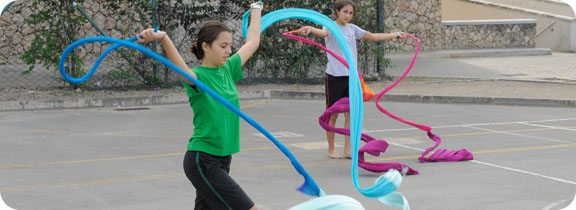
Aga Khan Curricular Strands
The Aga Khan Curricular Strands (AK Strands) are a unique part of the programme offered by the Aga Khan Academies. The AK Strands are areas of learning aimed specifically at developing knowledge, skills and attitudes required by future leaders.
Our goal at the Academies is to develop young people who have strong local roots and are also globally minded. They should be able to become leaders in whichever fields they choose.
To help achieve this goal, we have identified five areas of learning, the Aga Khan Curricular Strands, that we believe are important for our students. These are:
- Ethics
- Pluralism
- Cultures (with an emphasis on Muslim civilisations)
- Governance and Civil Society
- Economics for Development
Implementing the AK Strands
The Aga Khan Curricular Strands are not taught as independent subjects. Instead, we weave them into the existing subject areas of the academic curriculum. They help inform the selection of content and themes for study. The AK Strands also provide direction for school life outside the classroom in areas such as policy making, recruitment, student life and residential life.
Two of the AK Strands, Ethics and Pluralism, help students develop values and dispositions required by ethical leaders. Our students learn about these areas in theory and are also encouraged to practice what they learn in their everyday lives.
Through the other three AK Strands, our students learn about ideas that are important to the functioning of societies. In particular, they learn about how these ideas impact people’s lives in countries of the developing world. The knowledge they gain helps them understand key issues from both local and international perspectives.
The AK Strands in practice
The Aga Khan Curricular Strands have been developed and tested over several years at the Aga Khan Academy Mombasa. This has led to new ideas and creative methods of teaching.
For example, teachers in different departments are using the AK Strands to collaborate in interesting ways. In one project, year 7 students worked on a unit that related to Governance and Civil Society in both humanities and English. They linked their theoretical understanding of authority structures to their study of the novel, The Giver.
They looked at questions of governance, freedom of choice, security and related ethical questions through the lenses of both subject areas. This allowed for a unique learning experience that was both broad and deep.
Through the Aga Khan Curricular Strands, our students develop attitudes and values that will help them throughout their lives. They also gain knowledge and understanding that will allow them to contribute positively to their societies in the future.
For more information on the educational programme offered at the Aga Khan Academy Mombasa please visit the Academic Programme page.
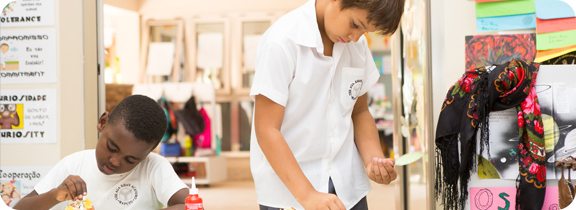
Aga Khan Curricular Strands
The Aga Khan Curricular Strands (AK Strands) are a unique part of the programme offered by the Aga Khan Academies. The AK Strands are areas of learning aimed specifically at developing knowledge, skills and attitudes required by future leaders.
Our goal at the Academies is to develop young people who have strong local roots and are also globally minded. They should be able to become leaders in whichever fields they choose.
To help achieve this goal, we have identified five areas of learning, the Aga Khan Curricular Strands, that we believe are important for our students. These are:
- Ethics
- Pluralism
- Cultures (with an emphasis on Muslim civilisations)
- Governance and Civil Society
- Economics for Development.
Implementing the AK Strands
The Aga Khan Curricular Strands are not taught as independent subjects. Instead, we weave them into the existing subject areas of the academic curriculum. They help inform the selection of content and themes for study. The AK Strands also provide direction for school life outside the classroom in areas such as policy making, recruitment, student life and residential life.
Two of the AK Strands, Ethics and Pluralism, help students develop values and dispositions required by ethical leaders. Our students learn about these areas in theory and are also encouraged to practice what they learn in their everyday lives.
Through the other three AK Strands, our students learn about ideas that are important to the functioning of societies. In particular, they learn about how these ideas impact people’s lives in countries of the developing world. The knowledge they gain helps them understand key issues from both local and international perspectives.
The AK Strands in practice
The Aga Khan Curricular Strands were developed at the first Aga Khan Academy in Mombasa and are designed to be used in different cultural contexts. Teachers from the Aga Khan Academy Maputo help tailor the AK Strands for the local environment in Mozambique.
Through the Aga Khan Curricular Strands, our students develop attitudes and values that will help them throughout their lives. They also gain knowledge and understanding that will allow them to contribute positively to their societies in the future.
For more information on the educational programme offered at the Aga Khan Academy Maputo, please visit the Academic Programme page.
Ananya Raju - making waves in the junior gymnastics circuit
Apart from gymnastics, Ananya enjoys playing basketball, swimming, horse riding and playing the violin. She is an ardent animal lover and spends her free time at the Blue Cross animal rescue centre with her father. Whenever she sees street dogs, she feeds them and plays with them, and one day dreams of building an animal orphanage for strays. Hand in hand with this is her predilection for environmental sustainability. She actively avoids using things that are harmful to the environment and talks to people about not using plastic, not burning firecrackers and segregating garbage.
Ananya, who joined the Academy in August 2018, is an inspirational child with a profoundly promising future. AKA Hyderabad is proud to have her and hopes to always be a part of her successes and joys.
